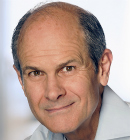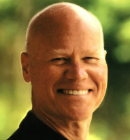 GEOFF COLVIN
GEOFF COLVIN
Millions of eyes and ears count on ― and respect ― Geoff Colvin’s insights on the key issues driving change in business, politics, and the economy. The senior editor of Fortune magazine, and named by Directorship magazine as one of the “100 Most Influential Figures in Corporate Governance,†Colvin draws on his years of insider access to top government figures and high-profile executives to share effective leadership strategies, and provides his unparalleled perspective on the business climate of today…and tomorrow. Below Geoff contemplates the impact of Brexit:
Brexit Fallout: World Leaders Should Wonder If They’re Next
Imagine what’s going through the mind of every developed country’s leader. Virtually all of them had endorsed the losing Remain side in the Brexit referendum, and now they’re wondering, What if that referendum’s equivalent had been held in my country? Nationalistic, anti-immigrant, isolationist movements are rising in France, Austria, Poland, Denmark, and elsewhere in the developed world. While those movements are usually described as right-wing, the Leave supporters also included a left-wing faction of older trade unionists and younger socialists, and every developed country has plenty of those too.


